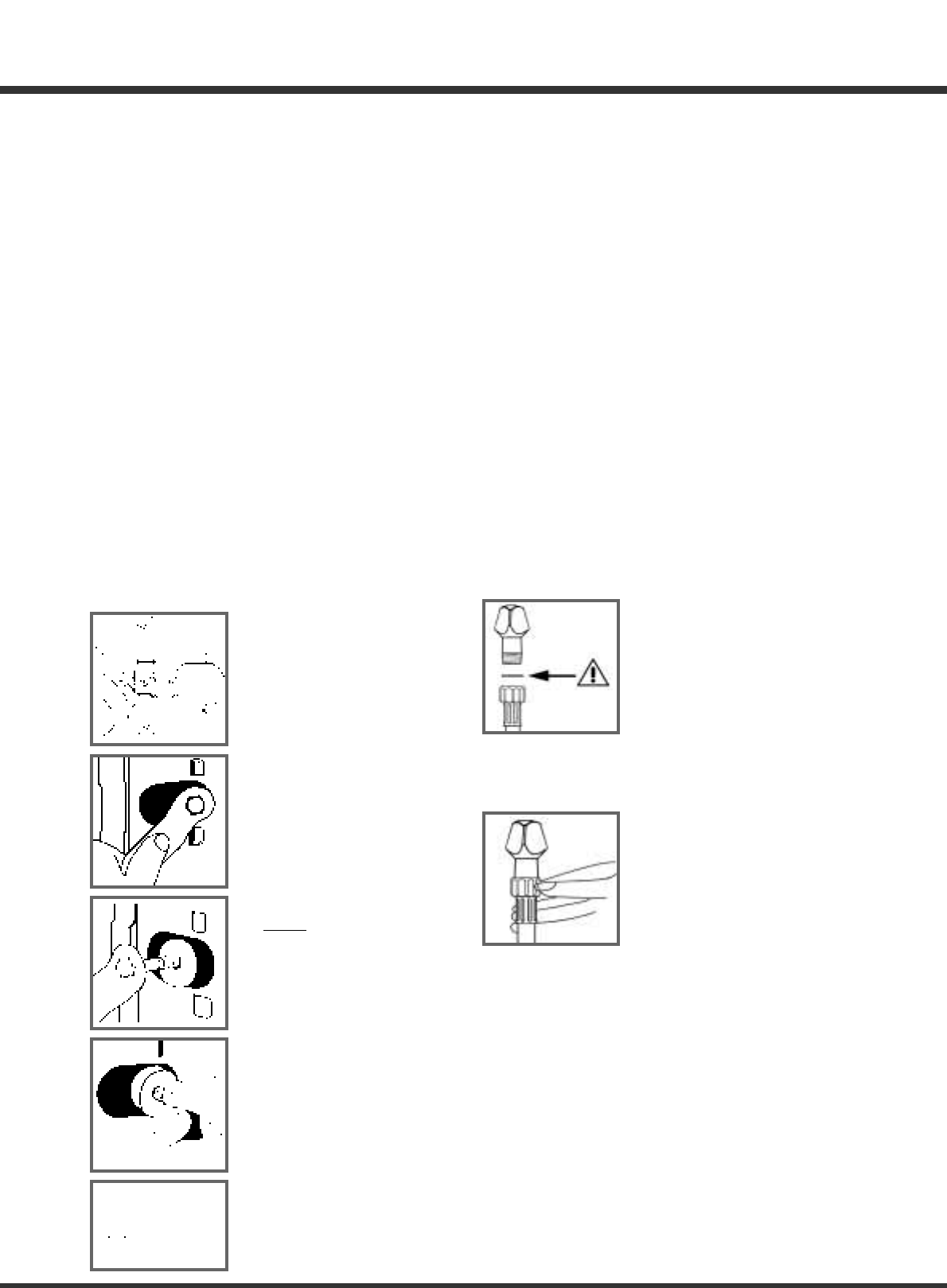
Installation
2
! Keep this instruction manual in a safe place for
future reference. Should the appliance be sold,
transferred or moved, make sure the instruction
manual accompanies the washing machine to
inform the new owner as to its operation and
features.
! Read these instructions carefully: they contain vital
information on installation, use and safety.
Unpacking
1. Unpack the washing machine.
2. Check whether the washing machine has been
damaged during transport. If this is the case, do
not install it and contact your retailer.
Remove the transit fixings
Follow these instructions to remove the TWO transit
fixings.
IMPORTANT: Situated one either side of the rear
panel, both transit bolts (complete with spacers)
MUST be removed before use... Failure to do so
may cause damage to your machine!
1. Use a crosshead
screwdriver to remove the
plastic cover.
2. Unscrew the bolt using a
13mm spanner.
3. ST
OP when 3 threads can
be seen.
4. Hold, slide and pull to
remove.
! It is important the transit bolt
and spacer come out intact
(see pic).
For safety, replace both plastic covers over the
holes left by removing the two bolts.
! Packaging materials are not childrens toys.
Levelling
1. Install the washing machine on a flat sturdy floor,
without resting it up against walls, cabinets etc.
2. Compensate for any unevenness by tightening or
loosening the adjustable front feet. The angle of
inclination, measured according to the worktop
must not exceed 2˚.
Levelling your appliance correctly will provide it with
stability and avoid any vibrations, noise and shifting
during operation. If it is placed on a fitted or loose
carpet, adjust the feet in such a way as to allow
enough room for ventilation beneath the washing
machine.
Water connection
Connecting the water inlet hose.
Remember that this is a cold-fill machine.
! Check that seal is in place
inside the hose end cap.
Before making the water connections to gas
3
/4
thread, allow the water to run freely from the supply
tap until it is perfectly clear.
Screw the inlet end with the
blue cap onto the cold water
supply tap.
Turn the taps on and check for leaks:
tighten if necessary.
! Make sure there are no kinks or bends in the hose.
! The water pressure at the tap must be within the values
indicated in the Technical details table (next page).
! If the water inlet hose is not long enough, contact a
specialist store or an authorised serviceman.
! Always use new hoses.
! Check the water hose at least once a year, replace any
that are cracked as worn hoses could split under water
pressure.


















